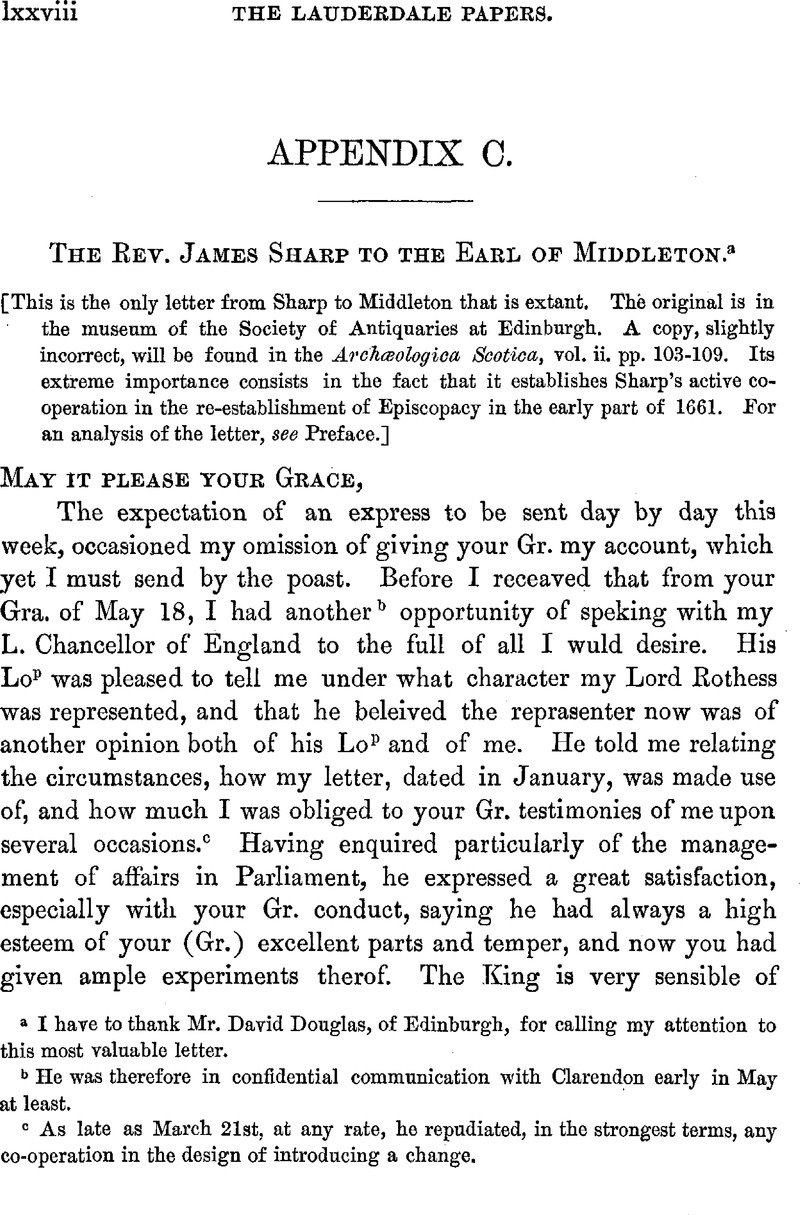No CrossRef data available.
Article contents
Appendix C
Published online by Cambridge University Press: 24 December 2009
Abstract

- Type
- Appendix
- Information
- Camden New Series , Volume 36: The Laurderdale Papers. Volume II. - 1667–1678 , January 1884 , pp. lxxviii - lxxxii
- Copyright
- Copyright © Royal Historical Society 1884
References
page lxxviii note a I have to thank Mr. David Douglas, of Edinburgh, for calling my attention to this most valuable letter.
page lxxviii note b He was therefore in confidential communication with Clarendon early in May at least.
page lxxviii note c As late as March 21st, at any rate, he repudiated, in the strongest terms, any co-operation in the design of introducing a change.
page lxxix note a On March 21 Sharp writes to Drummond : “ I declare to yon I have not acted directly or indirectly for a change amongst us, nor have I touched upon Church government in sermons or conferences at our Court or elsewhere.” The italics are my own. It is, of course, still open to the persons who would fain consider Sharp an honest man to say that “ often” must have occurred between March 21 and the beginning of May.
page lxxix note b Clarendon most distinctly states that Middleton went from London to the first meeting of the Scotch Parliament with the full understanding that Episcopacy was to be restored at the first opportunity. In January Sharp says, “ The Commissioner professeth he hath no purpose to meddle with the Church.”
page lxxix note c This was the proclamation, dated June 10, which said : “ We will make it our care to Lettle and secure the same (Church government) in such a frame as shall be most agreeable to the word of God, most suitable to monarchical government, and most complying with the public peace and quiet of the kingdom.” It was, then, the direct work of Sharp himself.
page lxxx note a On March 21 he writes : “ The offence it will give here, with other bad consequences, barr me from having accession to the bringing of it in.” On the 19th he wishes “ to go abroad and breathe in an air without the reach of the noyse of confusion coming, which I had rather hear of than be witnesse to.”
page lxxxi note a Glencairn and Rothes.


